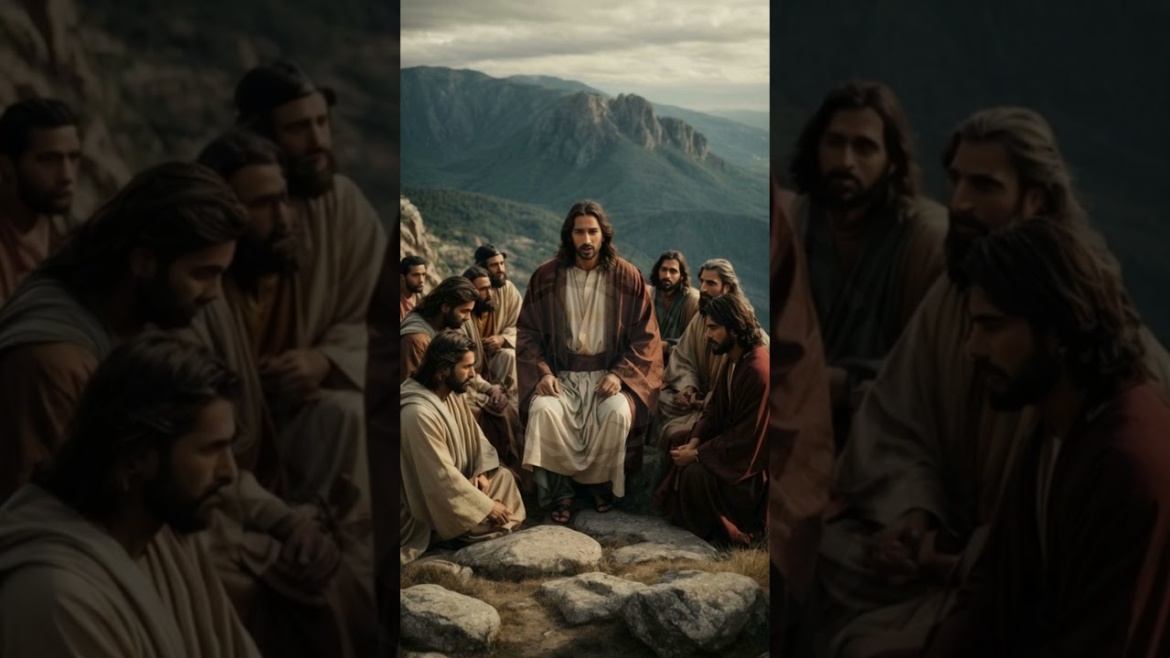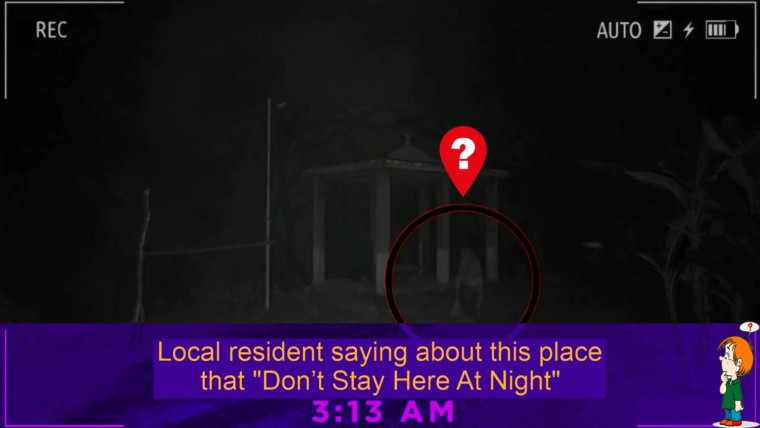The Significance of “Ye have heard that it hath been said, Thou shalt love thy neighbour, and hate thine enemy. But I say unto you, Love your enemies, bless them that curse you, do good to them that hate you, and pray for them which despitefully use you, and persecute you; That ye may be the children of your Father which is in heaven: for he maketh his sun to rise on the evil and on the good, and sendeth rain on the just and on the unjust. For if ye love them which love you, what reward have ye? do not even the publicans the same? And if ye salute your brethren only, what do ye more than others? do not even the publicans so? Be ye therefore perfect, even as your Father which is in heaven is perfect.”
The phrase “Ye have heard that it hath been said, Thou shalt love thy neighbour, and hate thine enemy. But I say unto you, Love your enemies, bless them that curse you, do good to them that hate you, and pray for them which despitefully use you, and persecute you; That ye may be the children of your Father which is in heaven: for he maketh his sun to rise on the evil and on the good, and sendeth rain on the just and on the unjust. For if ye love them which love you, what reward have ye? do not even the publicans the same? And if ye salute your brethren only, what do ye more than others? do not even the publicans so? Be ye therefore perfect, even as your Father which is in heaven is perfect.” is a powerful christian law used by Jesus in Matthew 5:43-48 from the Sermon on the Mount, in which Jesus Christ delivers a series of teachings on the nature of true righteousness. In this particular teaching, Jesus challenges the prevailing notion of love, which was often interpreted as a love that only extended to those who were considered friends or allies. He instead calls on his followers to love their enemies, bless those who curse them, do good to those who hate them, and pray for those who persecute them. This radical law is based on the idea that true love is not based on feelings or circumstances, but rather on imitating the unconditional love of God, who shows compassion to everyone, regardless of their actions.
Context of the Phrase
The law appears within Jesus’ Sermon on the Mount, a collection of teachings focusing on right living and morality for spreading God’s message. The Sermon on the Mount is a pivotal moment in Jesus’ ministry, where he outlines the core principles of his teachings. The law “Ye have heard that it hath been said, Thou shalt love thy neighbour, and hate thine enemy. But I say unto you, Love your enemies, bless them that curse you, do good to them that hate you, and pray for them which despitefully use you, and persecute you; That ye may be the children of your Father which is in heaven: for he maketh his sun to rise on the evil and on the good, and sendeth rain on the just and on the unjust. For if ye love them which love you, what reward have ye? do not even the publicans the same? And if ye salute your brethren only, what do ye more than others? do not even the publicans so? Be ye therefore perfect, even as your Father which is in heaven is perfect.” on loving enemies is part of a larger discussion on righteousness and the fulfillment of the law in the Jewish context of Jesus’ time, that there was a strong emphasis on loving one’s neighbor, but this was often interpreted as loving only those who were members of one’s own community. Jesus expands this definition of “neighbor” to include all people, even our enemies. Jesus is challenging his followers to go beyond the superficial requirements of the law and embrace a deeper, more transformative way of living.
Significance of the Phrase
The law “Ye have heard that it hath been said, Thou shalt love thy neighbour, and hate thine enemy. But I say unto you, Love your enemies, bless them that curse you, do good to them that hate you, and pray for them which despitefully use you, and persecute you; That ye may be the children of your Father which is in heaven: for he maketh his sun to rise on the evil and on the good, and sendeth rain on the just and on the unjust. For if ye love them which love you, what reward have ye? do not even the publicans the same? And if ye salute your brethren only, what do ye more than others? do not even the publicans so? Be ye therefore perfect, even as your Father which is in heaven is perfect.” on loving enemies is one of the most profound teaching in all of Scripture. It goes against our natural instincts for self-preservation and retaliation, and it requires us to extend love to those who have hurt or wronged us. This teaching is not about condoning or excusing evil, but rather about counteracting evil with love. By loving our enemies, we can disarm their hostility and show them the true nature of God’s love.
Here are some key points:
Profound definition: Jesus’s teaching on loving enemies is a profound definition of our understanding in love. It is not about feeling good or being popular, it is about following God’s example of unconditional love and grace. When we love our enemies, we reflect the character of God and become true children of our Father in heaven.
Profound challenge: Jesus’s teaching on loving enemies is a profound challenge to our natural instincts and societal norms. It calls us to extend love and kindness even to those who have wronged us or who we find difficult to like. This teaching is not merely about being passive or weak, it is about actively seeking the good of others, even if they are our enemies.
Application of the Phrase
The law “Ye have heard that it hath been said, Thou shalt love thy neighbour, and hate thine enemy. But I say unto you, Love your enemies, bless them that curse you, do good to them that hate you, and pray for them which despitefully use you, and persecute you; That ye may be the children of your Father which is in heaven: for he maketh his sun to rise on the evil and on the good, and sendeth rain on the just and on the unjust. For if ye love them which love you, what reward have ye? do not even the publicans the same? And if ye salute your brethren only, what do ye more than others? do not even the publicans so? Be ye therefore perfect, even as your Father which is in heaven is perfect.” is applicable to all of us, regardless of our religious beliefs. It challenges us to be more understanding, love and forgiving in our relationships with others. It also reminds us that our actions have a ripple effect, and that by showing love to even the most difficult people, we can change the world around us.
Here are some key points:
Loving our enemies is not a traditional practice: It is a call to radical discipleship. It challenges us to live out our faith in a way that is countercultural and transformative. By loving those who are different from us, we can demonstrate the love of God to the world and bring about a more just and peaceful society.
Loving our enemies is not an easy practice: It is a call to radical righteousness. It requires us to make a conscious choice to extend love and forgiveness, even when we feel justified in anger or resentment. It is a daily practice that requires discipline and perseverance. However, the rewards of loving our enemies are immense. By following Jesus’ teaching, we can break the cycle of violence and hatred, and we can experience the transformative power of God’s love in our own lives.
Loving our enemies is not an own practice: It is a call to radical perfection. It is not about being perfect in our own strength, but about striving to be like our perfect Father in heaven. By loving our enemies, we can demonstrate the power of love to overcome hatred and division.
Here are some practical points:
Praying for our enemies: This can be difficult, but it is a powerful way to care for their well-being and show God that we are willing to forgive.
Respect for our enemies: This can be difficult, but it is a powerful way to break down barriers and show them that we are not like them.
Equality for our enemies: This can be difficult, but it is a powerful way to challenge discrimination with violence and show them that we are working to build a more just and equitable world for all.
In summary, the law emphasizes Jesus’s teaching on loving enemies. It is a call to radical love and transformation. It is a challenge to us to love unconditionally, even when it is difficult. By following this teaching, we can become more like our heavenly Father, who loves all his children, regardless of their actions.
THE CHILD IS INTENDED INTO ONE SUB & NINE EXTREMES
« Samsara Extreme Of Heaven In Child Intended To Exist »
WHAT IS ✨ COLD CHILD SPACE? IT IS JUST CHILD EXTREME!
« Child Extreme’s Code & subExtreme’s Law »













